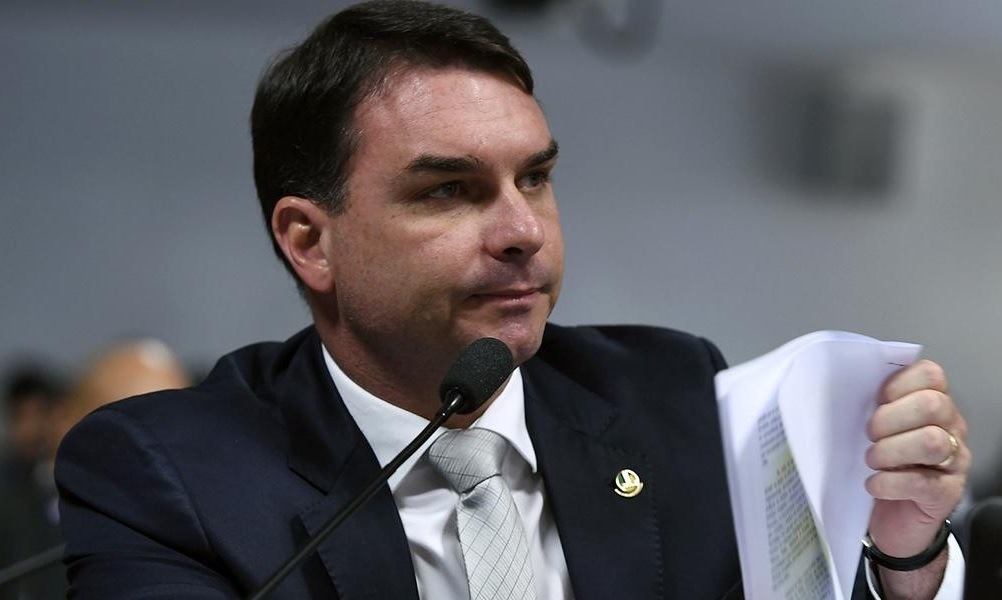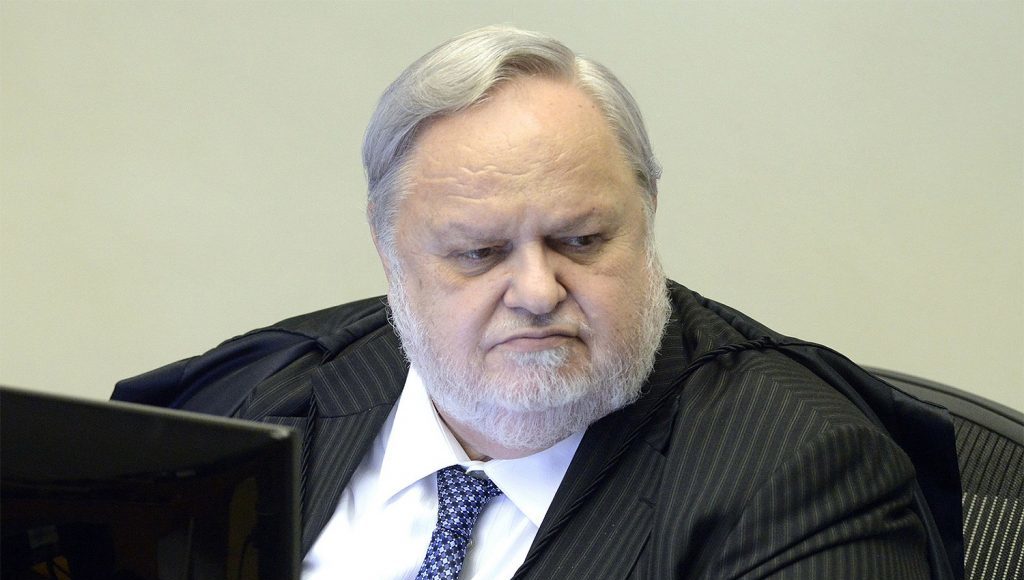RIO DE JANEIRO, BRAZIL – In rejecting Senator Flávio Bolsonaro’s appeal, Judge Felix Fischer, of the Superior Court of Justice (STJ), stated in his ruling that the breach of tax and banking secrecy of President Jair Bolsonaro’s eldest son was authorized “in duly substantiated court decisions” and also “in support of strong evidence of materiality and perpetration of crimes”.

Last Friday, Fischer rejected Flávio’s defense counsel’s motion to halt the investigation. The senator’s defense team will appeal the decision.
“Contrary to what the applicant states, that the investigation occurred against a politically exposed individual, with the disclosure of his fiscal and banking data for some ten years, the fact is that, as stated in the present minutes, the breach of confidentiality was authorized in two duly substantiated judicial decisions (under strong evidence of materiality and perpetration of crimes; in the purported creation of a large criminal association, with a high degree of permanence and stability in the ALERJ; and, as if that were not enough, in the indispensability of the measure),” wrote the judge, rapporteur of the case in the STJ.
The petition by Senator Flávio Bolsonaro’s defense was lodged in early March this year. The senator’s attorneys had appealed to the Court after their requests to the 3rd Chamber of the Rio de Janeiro Court of Appeals had been rejected.
The appeal to the STJ was the ninth time that Flávio’s defense has tried to halt the investigations, which are focused on embezzlement and money laundering in his office while he was a deputy in Rio’s Legislative Assembly (ALERJ), since January last year. The senator argues that there was a breach of fiscal and banking confidentiality in the report delivered by the Financial Activities Control Council (COAF ) concerning his irregular transactions.
The financial intelligence reports, which instructed the first stage of investigations, uncovered irregular transactions of funds in the office of Flávio Bolsonaro, when he was a state deputy. The first showed an unusual transfer of R$1.2 million from Fabrício Queiroz – the document launched the investigations.
Later, through another report, it was learned that the senator made 48 deposits of R$2,000 totaling R$96,000 over five days in June 2017. This report is among those that the defense claims occurred due to a breach of bank confidentiality without judicial authorization. In April last year, the Rio de Janeiro State Court authorized the breach of fiscal and banking confidentiality for Flávio and 95 other individuals and companies.
One of the arguments of Flávio Bolsonaro’s defense is that there were informal communications between the Rio Prosecutor’s Office and the COAF, to obtain the reports. The claim was rejected by Fischer.
“Specifically with respect to the presumed absence of formality in the communications between the Prosecutor’s Office and the COAF, the judgment under appeal was also clear in confirming the allegations that the exchange of e-mail did not go beyond the scope of the Prosecutor’s Office itself and that the communications between the latter and the COAF complied with what was determined by the Supreme Court,” wrote the judge.

Another point raised by Flávio Bolsonaro’s defense to the STJ is that data contained in the COAF report would have been excessively detailed and would have represented an “inquest” into the Senator’s accounts. Fischer agreed with the Rio de Janeiro Court decision and cited an excerpt from the decision of the 3rd Criminal Chamber of Rio de Janeiro.
“The ruling rejected the defense’s argument with the simple statement of the specific case: ‘Contrary to what the petitioner claims, there was no indiscriminate inquest into the account of the defendant, the examination of which was limited to the period between 2017 and 2018, when he exercised the mandate of State Deputy; there is no indication of who would be the depositors of this money, much less, in general, to whom the defendant would have made the transfers,” wrote the judge.
Fischer further said that the defense failed to present evidence of said “inquest” and emphasized that he did not note in the records “abuse of power” or “flagrant illegality”. “In the absence of evidence by the Defense of any specific evidence that such a statement was inconsistent, it should be noted that, absent an abuse of power, flagrant illegality or teratology, the broad and deep factual-probatory development is incompatible with this narrow path, which does not even allow for the probationary deferment,” he pointed out.
Last Friday, attorney Frederick Wassef, who works in the defense of Senator Flávio Bolsonaro, stated that “the defense never tried to prevent the investigation of the so-called ‘splitting’ scheme and is only acting against abuses in the case. Today’s claim is a monocratic decision and the defense will lodge an interlocutory appeal against this decision in the STJ after it is officially published”. The defense lawyer said it cannot comment on the substance of the case because it is under judicial seal.
Questioned by Globo newspaper, the Rio de Janeiro State Prosecutor’s Office’s (MP-RJ) opposing arguments challenged Flávio’s arguments in the STJ, claiming that the sharing of the COAF reports with the prosecutors of the case occurred legally and within the framework of what was provided for in the Supreme Court’s ruling in November last year. In their petition to the STJ, the prosecutors said that “the current appeal lacks any logical or reasonable legal grounds”.
The Prosecutor’s Office stated that “as adequately clarified in the statements given by the judges appointed as enforcing authorities, there was no illegality in the steps taken”. In addition, the prosecutors emphasized that “Communications of Cash Transactions and Communications of Suspicious Transactions are forwarded by financial institutions to the COAF through an electronic system”.
The prosecutors further reiterated that, contrary to what Flávio Bolsonaro’s attorneys allege, “there was no request for any information sent to the COAF by e-mail”. “It is clear that the defense has been trying to sell the existence of informal communications to the COAF”.
The prosecutors state that ” the allegation is no more than speculation, presumably under the influence of press reports that the so-called Lava-Jato Operation sought data from the Federal Revenue Service, informally, through contacts with auditors, either by e-mail or through phone apps, WhatsApp and Telegram”. And concludes by stating that: “the news has nothing to do with the case at hand.”
Source: O Globo

